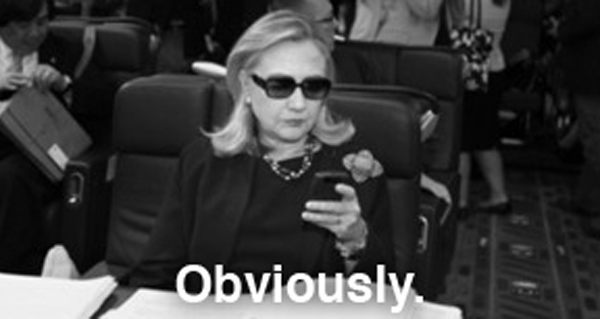Those "Personal" Email Accounts? If it's Official Business, it's a Public Record
Page Media

From Hillary Clinton’s homebrewed email server, to emails showing Governor Chris Christie’s administration cooking up a bridge closure, it seems government officials are becoming all too eager to use personal email accounts to conduct the public’s business.
As the government increasingly relies on email, text messages, and other technologies, some officials argue that these communications should always be beyond our public records transparency laws when conducted via personal accounts or devices.
False.
Public-records laws are designed to ensure that constituents and journalists have access to information on public affairs. They protect a bedrock value of our democracy – transparency.
We’re allowed to know what our government is up to. If a Secretary of State is emailing department officials about federal diplomacy, that’s the public’s business. If a Governor’s deputy chief of staff is texting the Port Authority about a bridge closure, that’s the public’s business too.
That’s why the ACLU of California along with the Electronic Frontier Foundation filed an amicus brief in the California Supreme Court about this very issue.
This case began when San Jose resident Ted Smith sent a Public Records Act request to the City of San Jose. He wanted to know more about a downtown development project funded partially by the City. And he had a right to that information.
But San Jose refused his request for the official emails, because the mayor and councilmembers had sent them on their personal accounts.
So Mr. Smith filed a lawsuit. A California trial court agreed that he had a right to the emails, as they were public records about government business. Unfortunately, an appeals court reversed that decision.
Now, the case is before the California Supreme Court.
In our amicus brief, we’re arguing that official email records must be subject to California public records law - even when they are sent using a non-governmental email account like Gmail or Yahoo! Mail. The City of San Jose is arguing the opposite.
This is a misguided reading of the California Public Records Act (CPRA). It’s also bad policy, especially as more and more public records go digital.
Not only do the CPRA and the California Constitution specifically require that these records be subject to public inspection, there’s precedent for this across the country. The federal government and many states already consider all employees’ emails relating to government business to be public records – whether sent from a personal account or not.
The public has a right to know when public officials are acting in their name, regardless of what digital form those actions take.
Now, public officials do deserve privacy, just like anyone else. We believe the California Supreme Court is perfectly capable of crafting a rule that safeguards public access while maintaining the privacy of employees by ensuring that only official emails are disclosed.
We’re living in a new, digital era. Policies that shield government records from the public’s view create perverse incentives for public officials to continue using non-governmental accounts to conduct any public business they would like to remain undisclosed.
Everyone deserves an open and transparent government. We look forward to a ruling by the California Supreme Court that makes it clear that transparency laws remain relevant even in the digital age.
Matt Cagle is a Technology & Civil Liberties Policy Attorney with the ACLU of Northern California.
